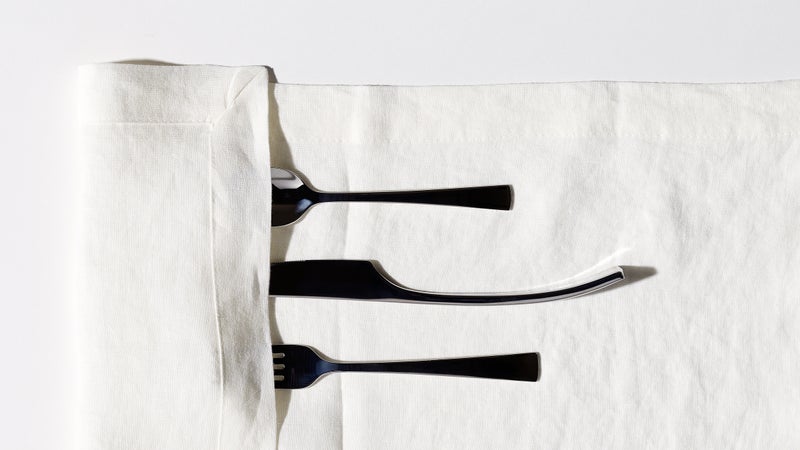On a typical morning, 67-year-old musician and runner Nolan Shaheed wakes up, does 40 minutes of stretches, push-ups, sit-ups, and free weights, drinks a glass of water, and practices for two hours. Then he heads to the recording studio for a while before breaking for a 90-minute run. Only then, after an afternoon shower, does he cook and eat his only meal of the day—a piece of fruit, a bit of white meat, and some vegetables and grains, usually rice, broccoli, and carrots. He’s been doing this six days a week for 40 years, and he holds at least a dozen masters world records, from the 800 to the 5,000 meters.
Fasting, even for short periods of time, isn’t new, of course—Plato was known to abstain to improve mental and physical health. But it has grown in popularity since science journalist Michael Mosley preached its benefits as a solution to weight loss back in 2012. There are numerous variations (see “Think Fast,” below) and even more devotees, from fitness coach Ben Greenfield to Mark Mattson, a neuroscientist at the National Institute on Aging. Retired general Stanley McChrystal considers his one meal—dinner—a reward at the end of the day. Actor Hugh Jackman says he “feels so much better” after fasting.
If you deprive the body of calories, says paleo bellwether Mark Sisson, it’ll utilize natural fat stores without causing muscle loss or significant declines in power.
Intermittent fasting has some documented benefits. A 2014 meta-study found that calorie-deprivation diets decreased inflammation, increased metabolism, and reduced stress. (The study subjects were mice.) Other research has found that fasting reduces symptoms of asthma and appears to help children in intensive care recover more quickly. On a less clinical level, it can make for easy weight-loss math: lower your calorie intake a few days per week, or a few hours per day, and you reduce your total calorie count.
Paleo bellwether says that once your body is used to it, fasting can be a quick way to achieve ketosis—the point at which your body burns fat rather than carbs for fuel. If you deprive the body of calories, he says, it’ll utilize natural fat stores without causing muscle loss or significant declines in power, leading to a much improved strength-to-weight ratio. “Many endurance athletes aren’t optimizing their use of fat as fuel,” says Sisson.

But many sports nutritionists are skeptical, pointing out that intermittent fasting has yet to be sufficiently tested on athletes. They have long held that properly timing nutrient intake is crucial for optimal performance—eat carbohydrates before exercise and you’ll have more glycogen in your muscles; eat protein after and you’ll recover faster. Trying to cram a day’s worth of macronutrients into a single meal, they say, won’t have the same effect. “It’s suboptimal for muscle building,” says sports nutritionist , who notes that the anabolic, or muscle-growing, effects of a meal last only about five hours. “If you confine all your meals to a narrow time period,” says Schoenfeld, “you’ll miss out on anabolism throughout the day.”
Others argue that there are easier ways to raise your strength-to-weight ratio. “In the very best case, fasting yields the same results an athlete can get far more simply by maintaining a high-quality diet and avoiding overeating,” says author and sports nutritionist Matt Fitzgerald. Even Sisson concedes that the perceived benefits are mostly conjecture. “Intermittent fasting hasn’t been studied to any great extent,” he says.
What little research has been done on athletes focused primarily on the sunup-to-sundown fast practiced by Muslims during Ramadan. One study of Muslim Olympians found that 5,000-meter runners experienced a 5 percent performance decline. In another study, sprinters and other power athletes experienced little to no effect.
Although Fitzgerald doesn’t endorse the practice, he thinks that endurance athletes who are interested in experimenting should consider the Leangains diet—essentially skipping breakfast—which allows you to develop a consistent training routine.
For Shaheed, fasting is less about performance than feel. “I’m never hungry,” he says. “I also run quicker after a two-day fast, though I feel a little weak and don’t realize I’m going that fast—a strange phenomenon.”–
Four Popular Fasting Methods
5:2 Diet
Consume a limited number of calories (generally around 500) two days out of the week, and eat normally on the other five.
Alternate Day
Similar to the 5:2 diet, except that the eating and fasting days alternate, which increases the weekly calorie deficit.
24-Hour Fast
No food for a 24-hour period once or twice a week. Popularized by nutritionist Brad Pilon’s book .
���Բ������Բ���
Fast for 16 hours overnight and into the morning, then eat during the remaining eight. In other words: skip breakfast.


